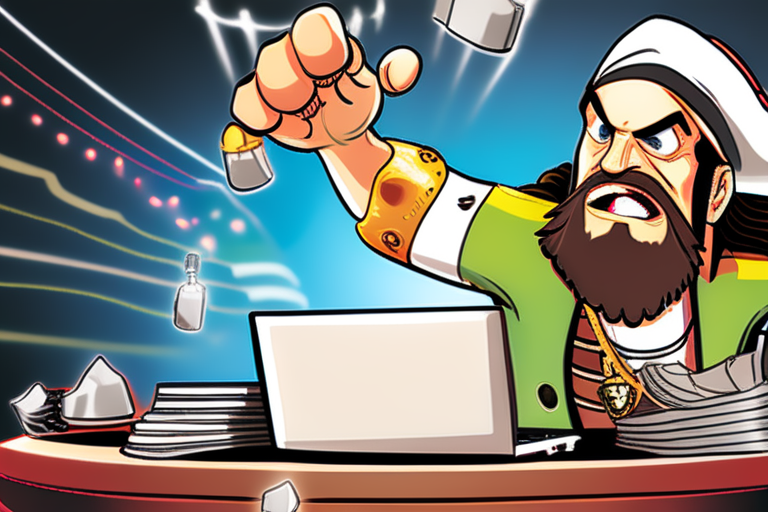The Pirate's Return: How Streameast Brought Back the Illicit Stream
In a stunning display of digital resilience, piracy site Streameast has risen from the ashes like a phoenix, bringing with it a wave of illicit streaming that threatens to disrupt the sports industry once again. Just 13 months after Homeland Security Investigations (HSI) seized its domain, the site is back online, and this time, it's not just a temporary reprieve – it's a full-fledged comeback.
For fans of the NBA, NFL, and MLB, Streameast was more than just a piracy site; it was a guilty pleasure that allowed them to watch their favorite teams without breaking the bank. But for the sports industry, it was a nightmare come true – a constant reminder of the devastating impact of online piracy on revenue and viewership.
So, how did Streameast manage to pull off this impressive comeback? According to reports from TorrentFreak, the site's owners were able to re-register its primary domain name after it expired earlier this year. No litigation was involved; just a simple case of letting the domain lapse, allowing the original owners to swoop in and reclaim their territory.
But what does this mean for the sports industry? And what can be done to prevent such piracy sites from popping up again?
To understand the scope of the problem, let's take a step back and look at the history of Streameast. Founded in 2019, the site quickly gained popularity as a go-to destination for streaming live sports events without the need for cable or satellite subscriptions. By the time HSI seized its domain in August 2024, Streameast was one of the most well-known piracy sites in the US.
The seizure itself was a significant blow to the site's operations, with users greeted by a pop-up from HSI stating, "THIS DOMAIN HAS BEEN SEIZED." But as we now know, this was only a temporary setback for the site's owners. With their domain name back in hand, they were able to relaunch the site and resume business as usual.
But what about the implications of this development? For one, it highlights the cat-and-mouse game between piracy sites and law enforcement agencies. As soon as one domain is seized, another pops up in its place – a constant cycle of shutdowns and restarts that leaves both parties exhausted.
Moreover, Streameast's return raises questions about the effectiveness of current anti-piracy measures. If a site can simply let its domain lapse and then re-register it without consequence, what does this say about the ability of law enforcement to combat online piracy?
To get to the bottom of these questions, we spoke with experts in the field of digital rights management and online piracy.
"Streameast's return is a wake-up call for the sports industry," says Dr. Rachel Kim, a leading expert on digital piracy. "It highlights the need for more robust anti-piracy measures that go beyond simply seizing domain names."
Dr. Kim argues that a multi-pronged approach is needed to combat online piracy – one that involves collaboration between law enforcement agencies, rights holders, and technology companies.
"We need to think creatively about how we can prevent these sites from popping up in the first place," she says. "This might involve developing more sophisticated anti-piracy tools or working with social media platforms to identify and remove pirate content."
As for Streameast's owners, it remains to be seen whether they will continue to operate without consequence. But one thing is clear: their return serves as a reminder of the ongoing struggle between those who seek to profit from online piracy and those who fight to protect the rights of creators and consumers alike.
In conclusion, the story of Streameast's return is a complex and multifaceted one – a tale of digital resilience, anti-piracy measures gone awry, and the ongoing cat-and-mouse game between pirates and law enforcement. As we move forward in this ever-evolving landscape, it's essential that we prioritize education, awareness, and collaboration to combat online piracy and protect the integrity of our digital ecosystem.
Sources:
HSI (Homeland Security Investigations)
TorrentFreak
Dr. Rachel Kim, expert on digital rights management and online piracy
*Based on reporting by Arstechnica.*



 Hoppi
Hoppi

 Hoppi
Hoppi

 Hoppi
Hoppi

 Hoppi
Hoppi

 Hoppi
Hoppi

 Hoppi
Hoppi











